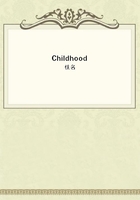
第7章
He flung a strip of leather on the floor with an angry gesture.
"Yet I know who has been playing tricks here, and why I am no longer wanted. It is because I do not flatter and toady as certain people do. I am in the habit of speaking the truth in all places and to all persons," he continued proudly, "God be with these children, for my leaving them will benefit them little, whereas I--well, by God's help I may be able to earn a crust of bread somewhere. Nicola, eh?"
Nicola raised his head and looked at Karl as though to consider whether he would indeed be able to earn a crust of bread, but he said nothing. Karl said a great deal more of the same kind--in particular how much better his services had been appreciated at a certain general's where he had formerly lived (I regretted to hear that). Likewise he spoke of Saxony, his parents, his friend the tailor, Schonheit (beauty), and so on.
I sympathised with his distress, and felt dreadfully sorry that he and Papa (both of whom I loved about equally) had had a difference. Then I returned to my corner, crouched down upon my heels, and fell to thinking how a reconciliation between them might be effected.
Returning to the study, Karl ordered me to get up and prepare to write from dictation. When I was ready he sat down with a dignified air in his arm-chair, and in a voice which seemed to come from a profound abyss began to dictate: "Von al-len Lei-den-shaf-ten die grau-samste ist. Have you written that? " He paused, took a pinch of snuff, and began again: "Die grausamste ist die Un-dank-bar-keit [The most cruel of all passions is ingratitude.] a capital U, mind."
The last word written, I looked at him, for him to go on, "Punctum" (stop), he concluded, with a faintly perceptible smile, as he signed to us to hand him our copy-books.
Several times, and in several different tones, and always with an expression of the greatest satisfaction, did he read out that sentence, which expressed his predominant thought at the moment, Then he set us to learn a lesson in history, and sat down near the window. His face did not look so depressed now, but, on the contrary, expressed eloquently the satisfaction of a man who had avenged himself for an injury dealt him.
By this time it was a quarter to one o'clock, but Karl Ivanitch never thought of releasing us, He merely set us a new lesson to learn. My fatigue and hunger were increasing in equal proportions, so that I eagerly followed every sign of the approach of luncheon. First came the housemaid with a cloth to wipe the plates, Next, the sound of crockery resounded in the dining-room, as the table was moved and chairs placed round it, After that, Mimi, Lubotshka, and Katenka. (Katenka was Mimi's daughter, and twelve years old) came in from the garden, but Foka (the servant who always used to come and announce luncheon) was not yet to be seen. Only when he entered was it lawful to throw one's books aside and run downstairs.
Hark! Steps resounded on the staircase, but they were not Foka's. Foka's I had learnt to study, and knew the creaking of his boots well. The door opened, and a figure unknown to me made its appearance,